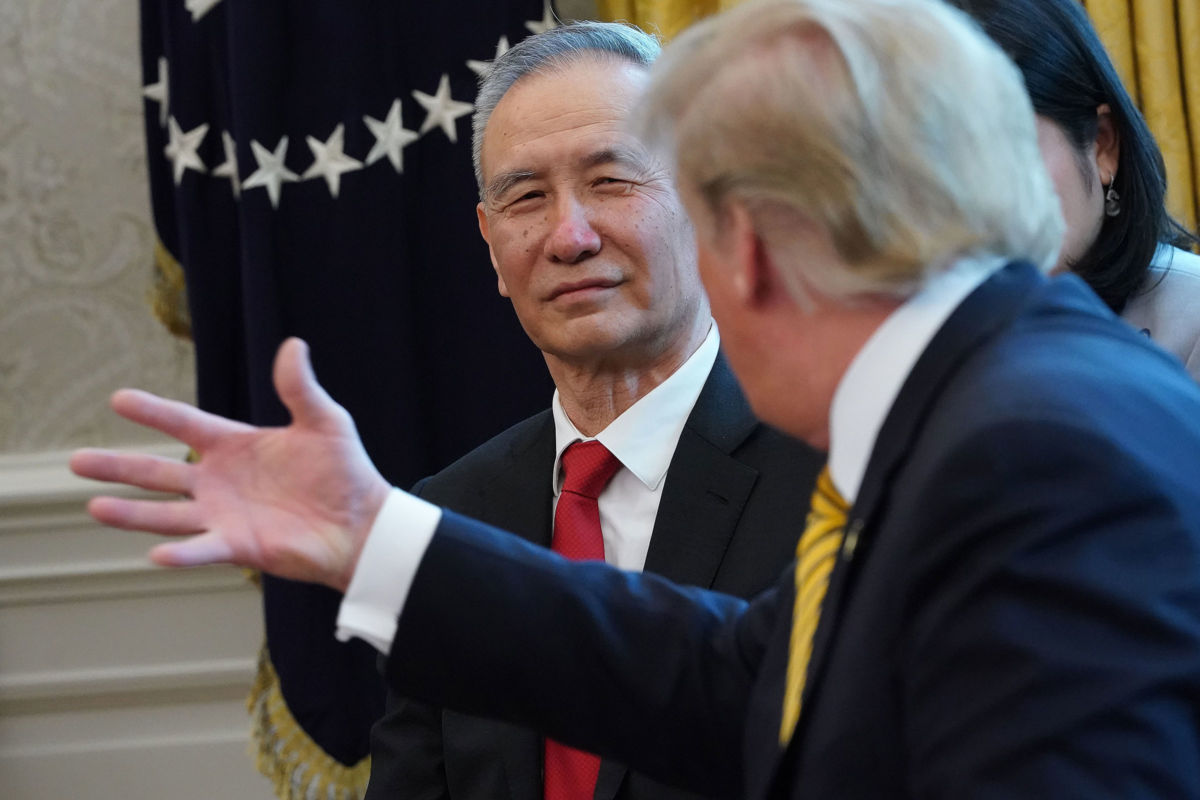Support justice-driven, accurate and transparent news — make a quick donation to Truthout today!
Relations between the U.S. and China have deteriorated sharply in recent days after trade negotiations broke down, leading some to suggest we are on the cusp of a new “cold war.”
President Donald Trump blames the resumption of hostilities on China. Specifically, he and his negotiators say their Chinese counterparts backtracked on an agreement to change laws aimed at enforcing the deal, prompting Trump to raise tariffs on $200 billion in imports and China to retaliate. Only a few weeks earlier, the two sides seemed very close to a deal.
So what led to China’s change of heart — if there was one?
As an expert on China’s development and economic reform, I believe the answer lies in trying to understand the situation from the Chinese perspective.
China’s Rise
China was a poor country not long ago. Its leaders effectively developed its productive and institutional capabilities by learning from foreign countries while allowing domestic companies to flourish over four decades of reform.
While this is commendable, as my research shows, and something other developing economies should emulate, it has also been controversial, particularly as China’s economy has become the world’s second-largest.
In 2015, a 10-year plan known as “Made in China 2025” put in place a set of incentives to encourage Chinese companies to move from basic manufacturing to high-tech sectors such as electric cars, robotics and artificial intelligence. China’s goal is to have its companies globally competitive in these sectors by 2025.
However, in order to meet these ambitious goals, in some cases Chinese companies must rely on subsidies, government funding, forced technology transfer and intellectual property theft. To foreign political and business leaders, these practices smack of unfair competition.
Now that China has established strong capabilities, the threat of overtaking the U.S. in high-tech areas such as AI seems real and the methods being used appear unfair. That’s why, as part of the negotiations, the Trump administration was trying to get China to end its practice of forced technology transfer by changing their laws.
The U.S. said China agreed to do this, but the Chinese rejected those claims.
China’s Internal Debate
While China will understandably not give up its development goals to please the U.S., the methods used to achieve them are also controversial within China.
There are those who want to continue to reform the economy by making it more efficient and letting private companies — rather than the government — handle business decisions. Others want to keep the government at the center of things by operating state-owned companies and providing support to other sectors of the economy, old and new.
It is generally accepted that the reformers would like to see some of the very changes that the Trump administration has been pushing for, such as more protection for intellectual property rights, open competition and a modern financial system to allow better global integration and a free-floating currency.
Reforms such as these carry risks, however. China’s economy has been slowing, and some policymakers worry that now is not the time to rock the boat. In times of economic distress, China has shown a tendency to fall back on top-down controls that were the norm when China had a centrally planned economy.
China has been here before. Based on my research on the process leading to China’s entry into the World Trade Organization in 2001, China’s internal debates were intense. Some policymakers believe that China gave up too much for the privilege, including changing many domestic laws — just as the Trump administration is seeking.
Those memories are likely influencing the debate in China today.
National Humiliation
A third factor provides an overarching context that is deeply integrated with the first two: China’s leaders and people will not tolerate “humiliation” by foreigners.
In the 1800s, Western powers won two so-called opium wars and received control over treaty-ports in China, allowing them to impose better terms of trade for themselves. The “century of humiliation” that followed is known to all Chinese, and China’s leaders have promised it will never happen again.
Fast forward to today, and President Xi Jinping’s “China Dream” is to establish China as a leading world power on par with the U.S. Hence, President Xi cannot be seen at home as weak by giving into American demands. China feels it must preserve its path to domestic economic strength and decide on its own what changes to make to its economic system.
These sensitivities underlie the instability of the current U.S.-China negotiations and the relationship more generally. They also show why, even though China doesn’t want a trade war with the U.S., finding a deal that satisfies both countries is not impossible, but will be tricky.
China’s reformers seem to have lost the upper hand in recent weeks, making it even less likely that the Chinese will make changes that are compatible with what the U.S. wants. Ultimately, any deal will need to convey to Chinese citizens that President Xi did the right thing for the country.
Combine this with the fact that Trump may seem to Americans to have “won” the trade war simply by appearing tough on China — whether or not a deal is struck — and the prospects of a positive resolution look dim.
Media that fights fascism
Truthout is funded almost entirely by readers — that’s why we can speak truth to power and cut against the mainstream narrative. But independent journalists at Truthout face mounting political repression under Trump.
We rely on your support to survive McCarthyist censorship. Please make a tax-deductible one-time or monthly donation.
